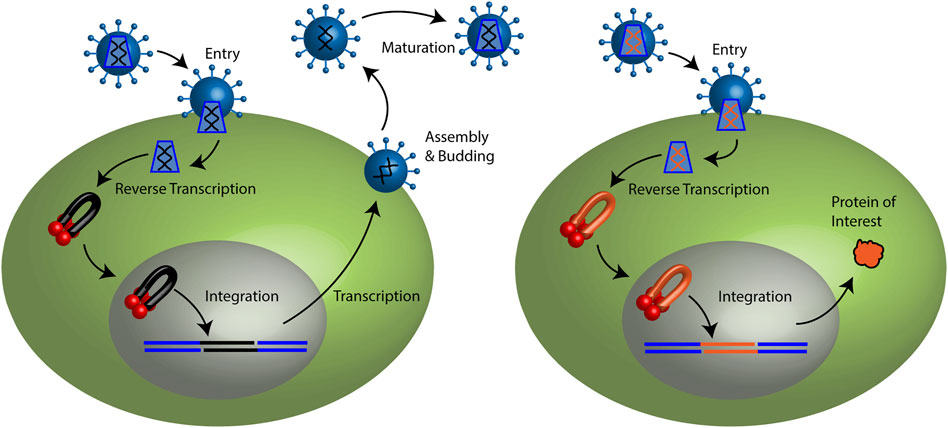Breakthrough Molecular Biology Technique Enables More Precise Incorporation of Artificial Retroviruses
Posted on December 31, 2023 • 3 minutes • 517 words
Scientists at Adelaida University have developed a groundbreaking molecular biology technique that allows for more precise incorporation of artificial retroviruses, marking a significant step forward in the genetic engineering capabilities of researchers.
Retroviruses are a type of RNA virus that can make DNA copies of their RNA genomes and insert the copies into the host’s genome, where they can be stably inherited by host progeny. This ability has long fascinated researchers in the field of molecular biology, as it opens up possibilities for modifying the genetic makeup of an organism in a targeted manner.

The new technique, which was published in the latest issue of the journal Molecular Biology, involves the use of specialized enzymes and molecular machinery to insert artificial retroviruses into specific locations within the genome of a host organism. This level of precision was previously unattainable, and it has the potential to revolutionize the field of genetic engineering.
Dr. Maria Rodriguez , who led the research team at Adelaida University, explained the significance of the breakthrough:
By being able to more precisely target and incorporate artificial retroviruses into the genome, we can potentially correct genetic defects, introduce beneficial traits, and even develop new therapies for genetic diseases with a level of specificity and control that was previously unimaginable.
This development could have far-reaching implications for medical and agricultural applications of genetic engineering.
The technique builds on the foundation of previous research in molecular biology, which has steadily advanced our understanding of the mechanisms governing genetic inheritance and gene expression. As our knowledge of the intricacies of molecular biology has deepened, so too has our ability to manipulate the genetic code of living organisms.
The potential applications of this technology are numerous and wide-ranging. In the field of medicine, it could lead to the development of more targeted and effective gene therapies for a variety of genetic disorders, including those that have thus far defied treatment. In agriculture, it could allow for the precise introduction of beneficial traits into crops, leading to more resilient and higher-yielding varieties.
Despite the promise of this new technique, there are still significant challenges to overcome. One of the primary hurdles is ensuring the safety and efficacy of the gene-editing process, particularly when it comes to potential off-target effects that could have unintended and harmful consequences. The research team at Adelaida University is working diligently to address these concerns and refine the technique to minimize such risks.
As with any technological advancement, ethical considerations also come into play. The ability to precisely manipulate the genetic makeup of living organisms raises important questions about the potential misuse and unintended consequences of such power. The scientific community, along with policymakers and ethicists, will need to carefully consider and address these issues as the technology continues to progress.
The development of this new molecular biology technique represents a significant milestone in the field of genetic engineering. With the ability to more precisely incorporate artificial retroviruses into the genome, scientists are poised to unlock new possibilities for addressing genetic diseases, improving agricultural practices, and gaining a deeper understanding of the fundamental mechanisms of life.
Share
Tags
Counters

